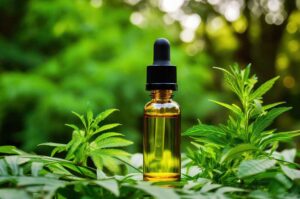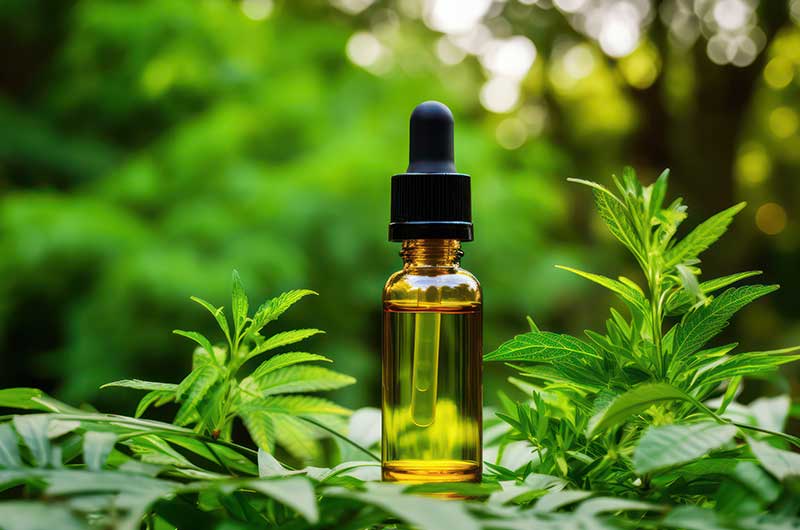 Court Rules Delta-8 THC from Legal Hemp is Not a Controlled Substance
Court Rules Delta-8 THC from Legal Hemp is Not a Controlled Substance
A U.S. Court of Appeals for the Ninth Circuit has ruled that Delta-8 tetrahydrocannabinol (Delta-8 THC), when derived from legal hemp, is not considered a controlled substance under federal law. This decision directly challenges the Drug Enforcement Administration’s (DEA) stance, which classified all synthetically derived THC compounds, including Delta-8 THC, as Schedule I controlled substances.
The court’s decision arose from a lawsuit filed by members of the hemp industry who contested the DEA’s interpretation of the 2018 Farm Bill, which legalized hemp and its derivatives. The ruling provides much-needed clarity on the legal status of Delta-8 THC, allowing it to continue being produced and sold if it is sourced from hemp with less than 0.3% Delta-9 THC.
What is Delta-8 THC?
Delta-8 THC is a naturally occurring cannabinoid found in trace amounts in hemp and cannabis plants. While similar in structure to Delta-9 THC, the main psychoactive compound in marijuana, Delta-8 is known to produce milder effects.
The 2018 Farm Bill made hemp and its derivatives legal if they contain less than 0.3% Delta-9 THC. This law unintentionally created a legal gray area for Delta-8 THC, which has grown in popularity due to its less intense effects. Products containing Delta-8 THC are mostly unregulated, despite the DEA’s position that all synthetic tetrahydrocannabinols should be classified as illegal.
DEA’s Position and Industry Pushback
The DEA has held that all synthetic forms of THC, including Delta-8, are Schedule I drugs, regardless of how much Delta-9 THC is present. The agency argues that since most Delta-8 products are made through chemical processes that convert CBD into Delta-8, they should be considered synthetic and, therefore, illegal.
However, the hemp industry disputes this, arguing that Delta-8 derived from legal hemp should be treated the same as other legal hemp products. Many industry players assert that the 2018 Farm Bill should cover Delta-8, as long as the Delta-9 THC content remains below the legal threshold. This debate has resulted in multiple court cases, with the Ninth Circuit ruling in favor of the hemp industry.
The Court’s Decision
In its ruling, the U.S. Court of Appeals for the Ninth Circuit concluded that Delta-8 THC, when derived from legal hemp, does not qualify as a controlled substance. The court found that the DEA’s interpretation of the law was inconsistent and lacked sufficient reasoning.
This ruling means that Delta-8 THC, sourced from hemp containing less than 0.3% Delta-9 THC, is legal and can continue to be produced and sold. The decision also provides legal protection to businesses and consumers involved with Delta-8 products, helping to stabilize the growing market for hemp-derived cannabinoids.
Impacts on the Hemp and Cannabis Industries
This court decision is seen as a major win for the hemp and cannabis industries, opening the door for further development and innovation in the cannabinoid sector. Here are a few potential outcomes of this ruling:
- Therapeutic Potential: Delta-8 THC is recognized for its potential medicinal benefits, attracting more interest from consumers looking for alternative treatments.
- Increased Investment: The legalization of Delta-8 THC is likely to encourage more investment into research and product development, which could lead to new offerings in the market.
- Regulatory Concerns: With the market for Delta-8 expanding, there is a need for clear regulations to ensure quality control and consumer safety.
- Setting Standards: As demand for Delta-8 products grows, establishing industry standards will be essential to protect consumers and ensure consistent product quality.
Broader Implications for Cannabis Legalization
The Ninth Circuit’s ruling highlights the ongoing conflict between federal and state laws on cannabis and its derivatives. Many states have moved toward legalizing marijuana for medical and recreational use, putting increasing pressure on the federal government to reconsider its outdated policies.
This ruling on Delta-8 THC is seen as a positive step in the broader push for cannabis reform. However, significant hurdles remain in the path toward federal legalization of marijuana. The cannabis industry is still navigating a complex regulatory environment, and while Delta-8 THC may now be legal when derived from hemp, many other cannabis-related issues remain unresolved.
Achieving substantial progress for the cannabis industry
The U.S. Court of Appeals ruling provides critical clarity on the legal status of Delta-8 THC, allowing it to be sold and produced from legal hemp sources. This decision is a victory for the hemp industry and sets the stage for future developments in cannabinoid products. However, the legal and regulatory landscape for cannabis continues to evolve, and much work remains before comprehensive federal cannabis legalization becomes a reality.
How We Can Help
At Cannabis License Experts, we have the expertise needed to ensure your cannabis or hemp products comply with Health Canada and the FDA. Navigating the complexities of this process can be challenging so our experienced and highly qualified team is here to help you achieve the best outcome for your success. Contact us today to discuss how we can support your business!


